Farm and Food Systems Newsletter — February 2020
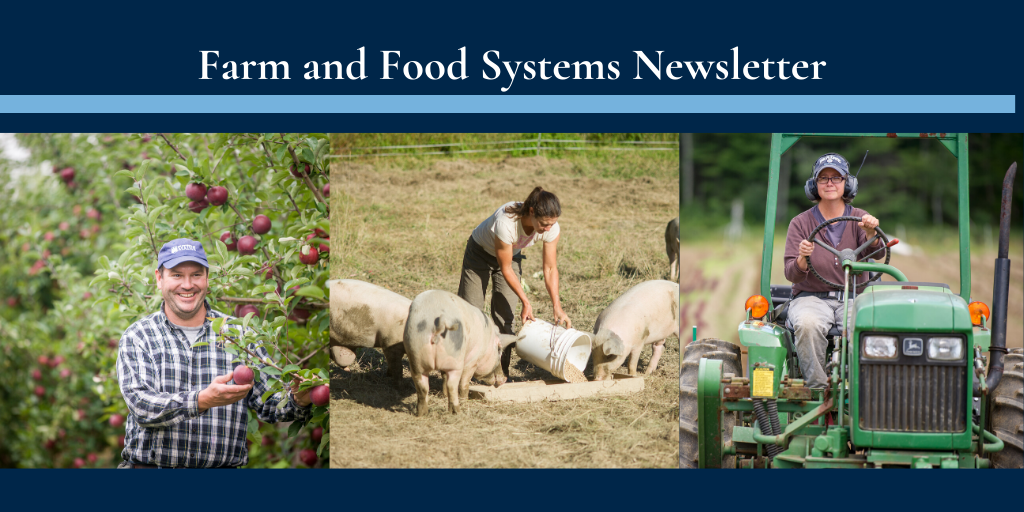
In this issue:
- UMaine Launches Grant-Funded Greenhouse Plastic Recycling Program
- Reduced Tillage Practices Have Lasting Effects on Soil Health and Crop Productivity: Research Overview
- USDA State Technical Committee Meeting Set for April 8 in Bangor
- Sign up for the Tractor Roll-Over Protective Structure (ROPS) Rebate Program: It Could Save a Life
- Respirator Fit Testing Requirements and New Resources
- Apply Now for Farmer Veteran Fellowship Fund
- New England Farmer Microgrant Program Launched
- Senior Farm Share Program Accepting Applications from New Farmers
- License Applications to Grow Hemp in Maine Now Available
- 2020 Crop Insurance Deadline Approaches
- Share Your Experience of Economic and Ecological Side Effects of Food Safety Practice Adoption
- Dry Bean Variety Development Survey
- UPCOMING EVENTS
- RESOURCES AND DIRECTORIES
UMaine Launches Grant-Funded Greenhouse Plastic Recycling Program
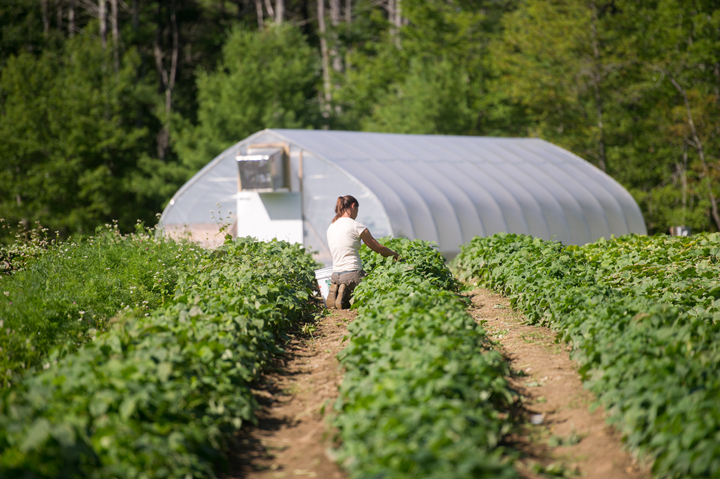
All Maine greenhouses, high tunnels, and plastic covered ag structures are eligible to participate in our new grant-funded Greenhouse Plastic Recycling program. Statewide collection will begin this spring at a network of convenient drop-off sites throughout Maine.
Information is available online including a program fact sheet, PowerPoint presentation summary from the recent ag trade show, articles, press releases, and an interactive map of drop-off sites. More details will be added as they become available such as drop-off site procedures and hours of operation.
Check the website in the coming weeks for updated information: extension.umaine.edu/agriculture/greenhouse-plastic-recycling.
Reduced Tillage Practices Have Lasting Effects on Soil Health and Crop Productivity: Research Overview
“In 2005, researchers started the Cornell Organic Grain Cropping Systems Experiment at a Cornell research farm in Aurora, New York. The experiment compared four cropping systems that varied in fertilizer inputs, tillage practices and weed control. Then in June 2017, the entire site – including the alleyways between plots – was plowed and seeded with sorghum sudangrass, to understand the long-term effects of previous management practices. By September that year, the researchers were gathering data on such things as soil invertebrate abundance, community structure, and weed and sorghum sudangrass biomass.
Overall, they found that past nutrient inputs, how much soils had been disturbed, weed management and the preceding crop all produced lasting effects. For example, plots that had been managed with a reduced tillage system generally had better overall soil health, especially when looking at microbial activity. And plots under an enhanced weed management system had less impressive soil health, but better weed control.”
— From the Cornell Chronicle. See more about this project here.
You can also find info about soil health practices and research happening here in Maine at the UMaine Extension Soil Health resource page.
USDA State Technical Committee Meeting Set for April 8 in Bangor
BANGOR, Maine – The USDA’s State Technical Committee meeting for Maine will be held April 8, 2020, at the USDA State Office conference room, 967 Illinois Ave., Bangor.
The meeting is scheduled from 10 a.m. to 2 p.m. and is open to the public.
The State Technical Committee (STTC) assists the USDA in matters relating to the implementation and technical aspects of conservation programs under the Farm Bill. The committee is traditionally composed of agricultural producers and other professionals that represent a variety of disciplines in soil, water, wetland, and wildlife sciences. The STTC includes representatives from several agencies including the Natural Resources Conservation Service (NRCS), the Farm Service Agency (FSA), and the Maine Forest Service.
The State Technical Committee meets regularly to provide information, analysis and recommendations to USDA officials charged with implementing the conservation provisions under the Farm Bill. The Committee’s role is advisory in nature, and has no implementation of enforcement authority.
Persons with disabilities who require accommodations to attend or participate in this meeting should contact NRCS Assistant State Resource Conservationist Tony Jenkins at (207) 990-9557 or tony.jenkins@usda.gov by March 25, 2020, to request accommodations.
For more information on the STTC contact Tony Jenkins at (207) 990-9557.
Sign up for the Tractor Roll-Over Protective Structure (ROPS) Rebate Program: It Could Save a Life
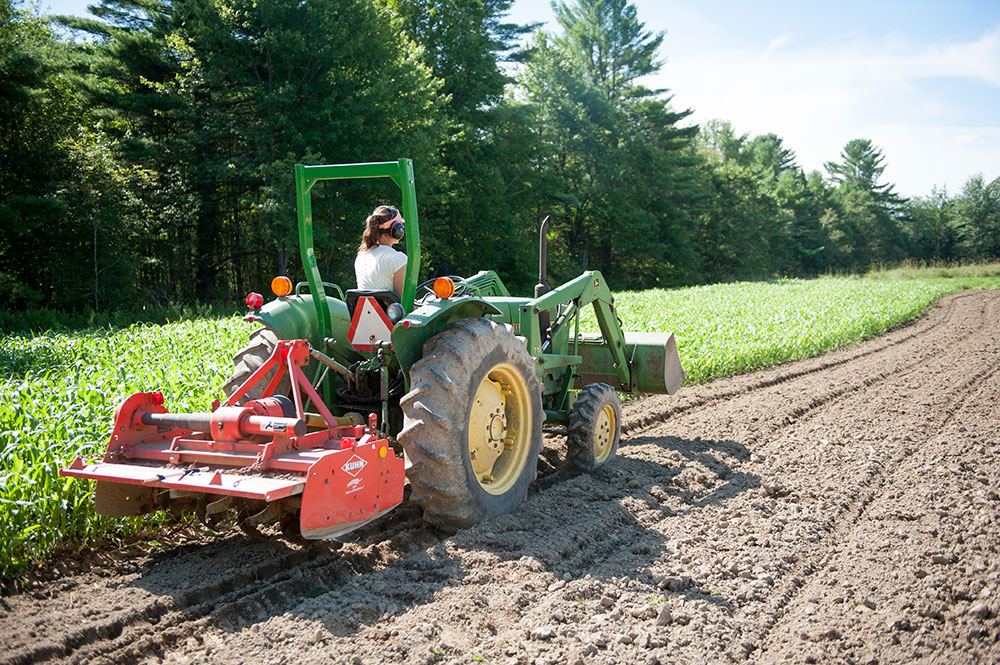
Tractor Roll-Overs are the leading cause of tractor related deaths on the farm. Installation of a Roll-Over Protection Structure (ROPS) is 70% effective at preventing injury or death when used without a seatbelt and 99% effective when used with a seatbelt. The National ROPS Rebate Program of the National Tractor Safety Coalition is working to make retrofitting ROPS on older tractors more attainable for farmers.
The National ROPS Rebate Program (NRRP) is a voluntary program that provides rebates for approximately 70%* of the cost of purchasing and installing a ROPS (Rollover Protective Structure; rollbar) kit. There are currently 18 farmers in Maine in line for the ROPS rebate program.
If you have an older tractor that you would like to install a ROPS system on, contact the National ROPS Rebate Program and visit their website to learn more about the program.
Infographic about Maine’s Current Involvement in the National ROPS program (PDF)
Respirator Fit Testing Requirements and New Resources
The UMaine Extension Pesticide Safety Education Program has released new resources for understanding respirator use best practices and requirements. The pdf’s are attached here:
- Understanding Respirator Types, NOISH Numbers, Filter Codes, and Cartridge Colors (PDF)
- Fit Testing and Other Respirator Requirements for Occupational Use (PDF)
- Proper Respirator Use and Maintenance (PDF)
- Fit Test Compliance Record Keeping and Training Questions Document (PDF)
Here is a synopsis of the Fit Testing Requirements.
Under the revised Worker Protection Standards (PDF), anyone applying pesticides that require the use of a respirator, must complete (and maintain a record of) an annual respirator fit test. Respirator fit tests must be completed with the same make, model, size, and style of respirator that will be used in the field.
1) Prior to respirator fit testing, each applicator must pass (and maintain a record of) a medical evaluation demonstrating they are physically fit enough to wear a respirator.
o Medical evaluations may be conducted with any licensed health care professional or through one of these online services. A few online options are listed here.
- 3M Respirator Medical Evaluation
- OSHA Medical Evaluation for Respirator Use
- Dawson Compliance Online Respirator Medical Evaluation/ Clearance Test
2) The second part of the fit testing process includes an actual fit test (making sure that the model of respirator you select is tight on your face).
Fit testing can be done at a local occupational health center. There they can do the medical evaluation and fit testing, but not the training. You can also buy a fit testing kit to do the fit tests on the farm.
At your fit test appointment:
- Bring your medical evaluation clearance form. You will not be fit-tested without it.
- Bring the respirator that you use in the field. Each person should have his or her own respirator.
- If the respirator you bring does not pass the fit test, you may have to purchase a new respirator with a better fit.
- Beards cannot be worn with tight-fitting facemasks. Please shave before going to a fit test.
3) Lastly, make sure that you and folks who are handling pesticides and wearing respirators can adequately answer the questions on the back of the attached record keeping document. If you can answer those questions, you are adequately “trained” to use a respirator.
For more information, contact Amanda Couture at the Board of Pesticide Control amanda.couture@maine.gov — 207-287-2731, or Kerry Bernard with the UMaine Extension kerry.bernard@maine.edu — 207-581-3884
Apply Now for Farmer Veteran Fellowship Fund
This fund is a small grant program that provides direct assistance to veterans who are in their beginning years of farming or ranching. Awards range from $1,000 to $5,000, and can be used to purchase equipment or supplies that will support your farm business. Learn more and apply by March 6. Application period is closed.
New England Farmer Microgrant Program Launched
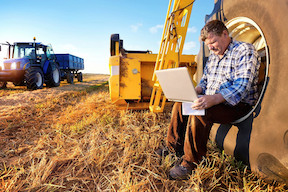
I am excited to announce the launch of the New England Farmer Microgrant Program (NEFMP) from American Farmland Trust! NEFMP is designed to provide between $500-$5,000 to assist farmers in New England with financial barriers to land access, expanding onto new land, and farm succession planning. The goal of NEFMP is to fund farmers in two primary categories: professional services and infrastructure costs related to assuring agricultural land is in production.
We will begin accepting applications March 1st, 2020 and will continue to do so on a rolling basis until all available funding is distributed. Application period is closed.
For farmers who prefer to print and mail, all documents are downloadable on the website.
Senior Farm Share Program Accepting Applications from New Farmers
AUGUSTA — The Department of Agriculture, Conservation and Forestry’s (DACF) Division of Agricultural Resource Development (ARD) today announced that the application period for new farms is now open for the 2020 Maine Senior FarmShare Program. Applications, including the full details for new farms and eligibility criteria, are available on the ARD website.
New for 2020, the Maine Senior FarmShare Program is welcoming more farms from throughout the state. Also, the USDA provided additional funding for 2020 that will help increase the number of participating farms from across Maine.
The Maine Senior FarmShare Program is administered by ARD and funded by the USDA’s Food and Nutrition Service Program. Following the Community Supported Agriculture model, a Senior FarmShare is an agreement between a participating farmer and a qualified senior for $50 of fresh produce.
Eligible farms must have one or more acres of mixed produce and the ability to offer a variety of fresh fruits and vegetables, over 8 weeks. The application deadline is end of business, Tuesday, March 31, 2020, and farms are encouraged to apply early as openings are limited.
For program information or to apply, farmers should contact Donna Murray, Program Manager with Maine Senior FarmShare Program, 207-287-7526 and donna.murray@maine.gov. Farms are invited to apply now on the Maine Senior FarmShare website.
License Applications to Grow Hemp in Maine Now Available
The Maine Department of Agriculture, Conservation and Forestry just released their license applications to grow hemp in Maine. Check out their website for information about growing hemp in Maine, including legal requirements, sampling procedures, obtaining seeds, license applications and more.
Prior to obtaining a license and planting a hemp crop, it is strongly recommended to carefully research and secure a market for the crop.
You might also consider attending the “Growing Hemp in Maine” Conference on March 6th.
2020 Crop Insurance Deadline Approaches
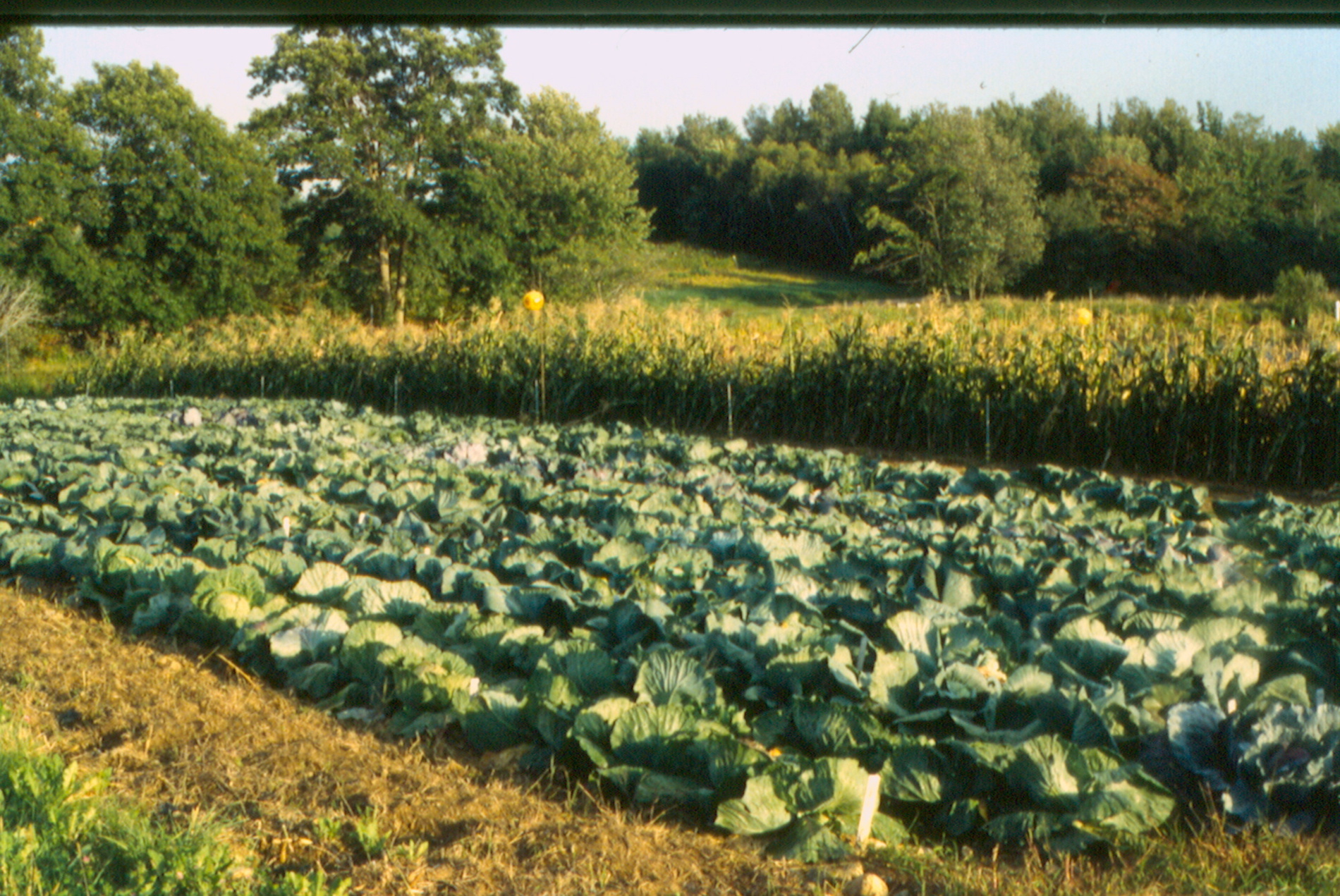
March 15, 2020 is the deadline to enroll, cancel, or change policy coverage for crop insurance on spring-seeded crops in Maine such as corn, sweet corn, barley, oats, spring wheat, and potato. Those producing other, “non-insurable” spring-seeded crops such as tomatoes, pumpkins, squash, etc. may seek coverage through the Non-insured Crop Disaster Assistance Program (NAP) available through the Farm Service Agency. March 15th is also the deadline to enroll in Whole Farm Revenue Protection, a crop insurance policy that protects a farm’s adjusted gross revenue. Locate a private licensed crop insurance agent.
Hemp Crop Insurance Pilot
Qualified hemp growers in Maine will be eligible for a Hemp Crop Insurance Pilot program. The Multi-Peril coverage is for hemp grown for fiber, grain or CBD oil for the 2020 crop year. Policy details are forthcoming. The deadline to enroll for 2020 coverage is March 15, 2020. To enroll, contact a private licensed crop insurance agent.
Learn More! Contact Erin Roche, UMaine Cooperative Extension, Crop Insurance Education Professional (949.2490), erin.roche@maine.edu. More information at www.extension.umaine.edu/agriculture/crop-insurance/
Share Your Experience of Economic and Ecological Side Effects of Food Safety Practice Adoption
ITHACA, N.Y. — Recent studies have suggested that on-farm food safety practices can have unexpected economic and ecological impacts. Despite the potential for negative consequences, limited data are available on the costs and benefits of implementing specific practices. Co-managing farms for food safety and sustainability is further complicated because farms are linked to adjacent environments so that management decisions can have unexpected ecological, economic and food safety consequences. A comprehensive understanding of the links between agricultural and adjacent environments is key to ensuring environmental health, sustainability, and food safety. A new survey, funded by the Atkinson Center at Cornell University, promises to give a clearer picture of these linkages and what this means for growers.
Specifically, to meet this need, a new collaborative research project between researchers at Cornell University, the University of California, and the University of Rochester is reaching out to growers in the Eastern United States to fill out a survey on food safety. The survey asks for information on how monetary and labor costs associated with on-farm food safety, agricultural water use and treatment, pest management and conservation practices. Filling out the survey should take about 20-30 minutes, and all responses are confidential.
If you grow vegetables, fruits, or nuts in the Eastern United States and would like to participate in this effort, please visit the following website: The first 300 people to complete the survey will be eligible for a $15 e-gift cards. The survey will be open through May 31st, 2020.
Click here to take the survey.
Dry Bean Variety Development Survey
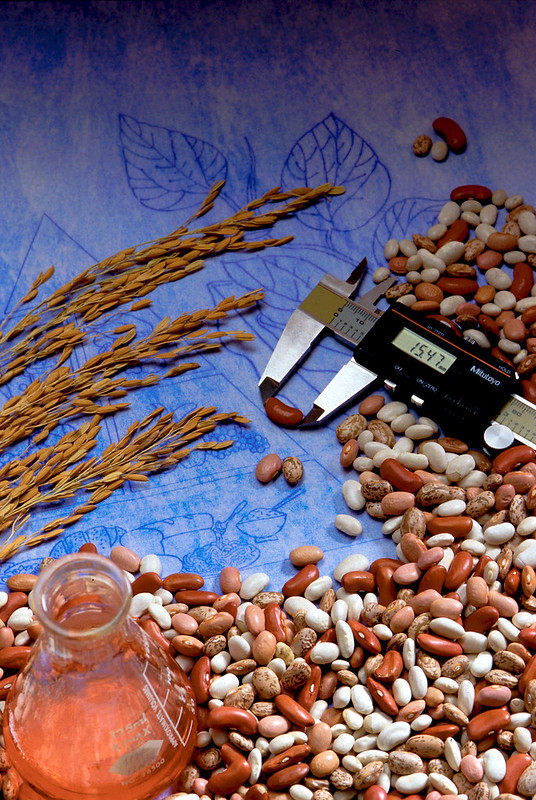
Do you grow edible dry beans? Help to guide upcoming research and variety development for organic and specialty dry bean production by completing this short survey (Est. time to complete: 7 minutes).
The purpose of this survey is to seek input from dry bean growers producing for organic, specialty and/or direct markets in the United States or Canada. Topics include current growing practices, agronomic challenges and needs for variety improvement. To our knowledge, this type of needs assessment has not previously been completed.
The survey is being conducted by researchers in the Plant Breeding and Genetics Section at Cornell University, but the results will be shared with growers, public bean breeders and Extension specialists across the United States as well as Canada.
Follow this link to the Survey: Dry Bean Grower Survey
UPCOMING EVENTS
Please see our latest newsletter for an up to date listing of events.
RESOURCES
Maine Ag Resource Groups:
- Maine AgrAbility: Assists farmers, fishermen, and forest workers to overcome disabilities, injuries or other barriers so they can continue to work safely and productively in agriculture.
- The Beginning Farmer Resource Network is a coalition of Maine agriculture agencies and organizations working together to connect aspiring and beginning farmers to resources for farm business success.
Production Guides:
- Hemp Diseases and Pests: Management and Biological Control (PDF) (Note: It is illegal to use any registered pesticide product on crops not listed on the label.)
- New England Vegetable Management Guide
- Northeast Vegetable and Strawberry Pest Identification Guide
- Guide for Organic Livestock Producers (PDF)
- Maple Business Resources Website
Podcasts:
- SARE’s Our Farms, Our Future podcast series
- More Podcasts at http://blog.uvm.edu/cwcallah/2018/12/17/podcasts-for-agricultural-education-and-insights/
Fact Sheets:
- New UMaine Produce Safety and FSMA Fact Sheet
- Cover Crop Economics. When Do Cover Crops Pay SARE Bulletin
- (NEW!) Bulletin #5120 Farmer Skill and Knowledge Checklist: What Maine Farmers Need to Know about Pesticides
- (NEW!) Bulletin #7014, Farmer Skill and Knowledge Checklist: Wreath, Garland, and Centerpiece-Makers
Listserv:
- Farmer-to-Farmer Communication for Maine Veg and Berry Growers. Connect with over 200 other growers for production and business discussions, and buying/ selling equipment and products.
Farming Apps:
- Updated SoilWeb App Available from NRCS
